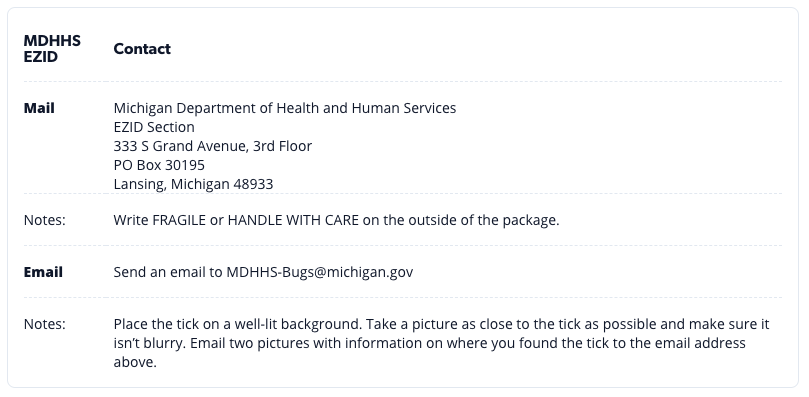Are you venturing out for yard work, hikes, or allowing your pets more outdoor time? Be vigilant about protecting yourself and your pets from ticks.
Ticks become active when temperatures rise above freezing. They inhabit grassy, brushy, or wooded areas, or they may hitch a ride on animals. The CDC notes that tick encounters frequently occur in your own yard or community.
Michigan’s 5 Most Common Ticks
Michigan is home to over 20 tick species. Here are the five most commonly encountered:
- American dog tick (wood tick)
- Blacklegged tick (deer tick)
- Woodchuck tick (groundhog tick)
- Brown dog tick (kennel tick)
These ticks often feed on wild animals, but some also bite humans and pets. Ticks are carriers of pathogens that can cause diseases like Lyme disease, which is prevalent in Michigan.
Discover more: 5 most common ticks in Michigan
How to Prevent Tick Bites
The CDC advises using EPA-registered insect repellents containing DEET, picaridin, IR3535, Oil of Lemon Eucalyptus (OLE), para-menthane-diol (PMD), or 2-undecanone. Use the EPA’s online tool to select the most suitable repellent for you.
Avoid wooded and brushy areas when possible, stick to the center of trails when hiking, tuck your pants into your socks, and opt for light-colored clothing to spot ticks easier. After outdoor activities, check your clothing for ticks. Clothing can be tumble dried on high heat for 10 minutes to kill ticks on dry garments. For damp clothing, the CDC recommends washing in hot water.
Showering within two hours of coming indoors can also reduce your risk of contracting Lyme disease and may help wash off unattached ticks.
Where to Check for Ticks
On yourself:
- In and around the ears
- In and around the hair
- Under the arms
- Inside the belly button
- Around the waist
- Between the legs
- Back of the knees
On your pet:
- In and around the ears
- Around the tail
- Around the eyelids
- Under the collar
- Under the front legs
- Between the back legs
- Between the toes
How to Safely Remove a Tick
Use fine-tipped tweezers or a tick removal key to carefully remove a tick by grasping it as close to the skin as possible. If remnants remain, cleanse the area with soap and water, followed by an antiseptic.
What to Do if You Find a Tick
Michigan residents can have ticks identified for free through the Michigan Department of Health and Human Services. Send a photo to [email protected], or mail the tick using a tick submission kit available from local health departments. Here is more information on sending ticks to MDHHS:





